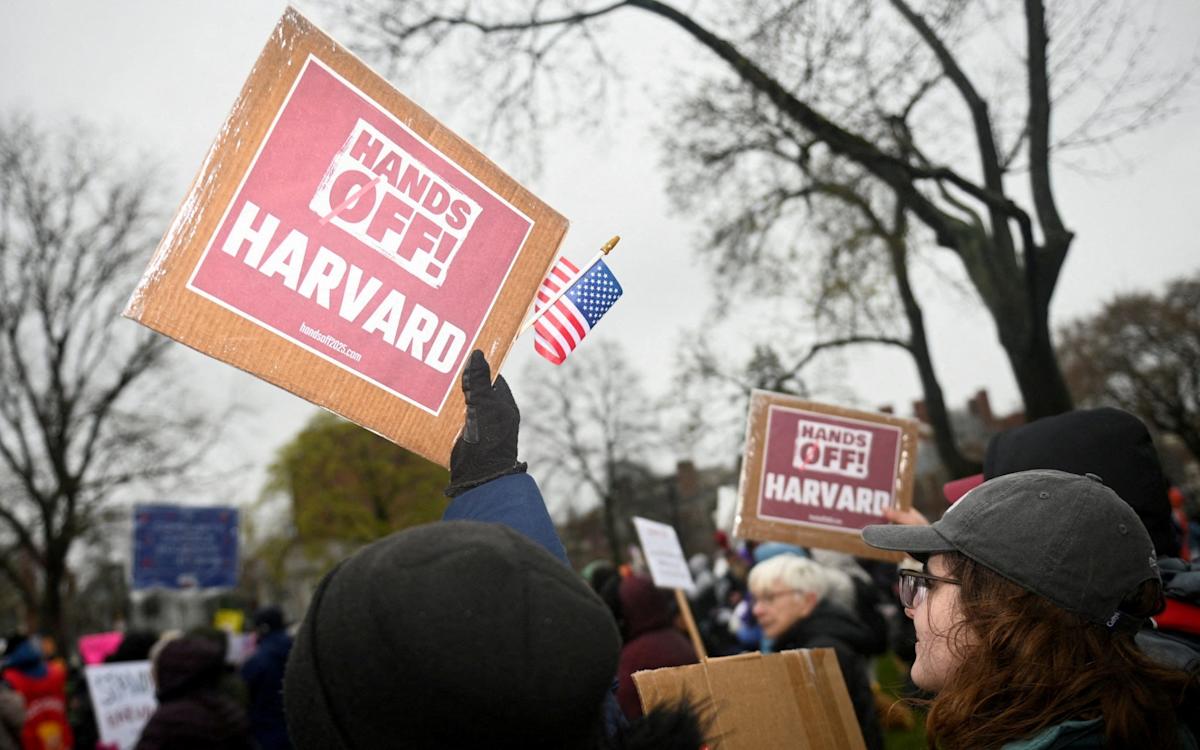Harvard faces $2bn funding freeze after rejecting White House demands

In the immediate aftermath of Harvard’s rejection, the Department of Education froze $2.2 billion (Sh284.9 billion) in grants and $60 million ( Sh7.7 billion) in contracts allocated to the university.
The Trump administration has decided to freeze over $2 billion (Sh259 billion) in federal funding for Harvard University after the institution rejected a list of demands from the White House.
This move comes shortly after the university's refusal to comply with the White House’s requests, which were presented as efforts to address concerns about antisemitism on campus.
The U.S. Department of Education expressed its dissatisfaction with Harvard’s stance, stating," Harvard's statement today reinforces the troubling entitlement mindset that is endemic in our nation's most prestigious universities and colleges."
The demands, which were submitted to Harvard last week, included significant changes in the university’s governance, admissions practices, and hiring policies.
Harvard responded by rejecting these proposals, arguing that the White House was attempting to "control" the university’s operations.
The university’s president, Alan Garber, issued a statement saying that the school would not comply with the administration’s demands, emphasizing that Harvard would not compromise its independence or constitutional rights.
Garber also clarified that while the university was committed to combating antisemitism, it found most of the government's requests to be an overreach into academic autonomy.
"We have informed the administration through our legal counsel that we will not accept their proposed agreement," Garber wrote.
"The university will not surrender its independence or relinquish its constitutional rights."
The demands sent by the White House included controversial measures, such as reporting students deemed “hostile” to American values and ensuring "viewpoint diversity" in every academic department.
Additionally, the administration sought the hiring of an external auditor to examine and possibly reform departments that might contribute to antisemitic behavior.
The government also demanded that Harvard take disciplinary action for past incidents during campus protests related to the Gaza conflict and cease its diversity, equity, and inclusion policies.
In the immediate aftermath of Harvard’s rejection, the Department of Education froze $2.2 billion (Sh284.9 billion) in grants and $60 million ( Sh7.7 billion) in contracts allocated to the university.
The department also pointed to what it called an “unacceptable disruption of learning” on campuses and said, "The harassment of Jewish students is intolerable. It is time for elite universities to take the problem seriously and commit to meaningful change if they wish to continue receiving taxpayer support."
The conflict between Harvard and the Trump administration highlights ongoing tensions regarding the handling of antisemitism and diversity on college campuses across the U.S.
These tensions were particularly inflamed by protests against U.S. support for Israel, which occurred on several campuses, including Harvard, in the wake of the 2023 Israel- Hamas war.
The Trump administration’s push for changes at major universities follows its broader strategy to pressure institutions to combat antisemitism and eliminate diversity programs.
This includes scrutiny on campuses like Columbia University, where the government previously pulled $400 million (Sh51.8 billion) in federal funding after accusing the university of failing to protect Jewish students.
Harvard's confrontation with the administration also builds on the legacy of its former president, Claudine Gay, who resigned after her controversial comments about the campus protests.
Gay’s remarks, which seemed to suggest that calls for violence against Jews might be excused depending on context, sparked backlash, ultimately leading to her departure.
In the wake of these developments, Harvard’s faculty members have filed lawsuits against the federal government, arguing that these actions represent an unlawful attack on academic freedom and freedom of speech.
They maintain that the university’s policies and practices should remain free from government interference.
